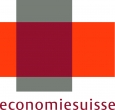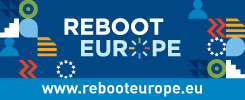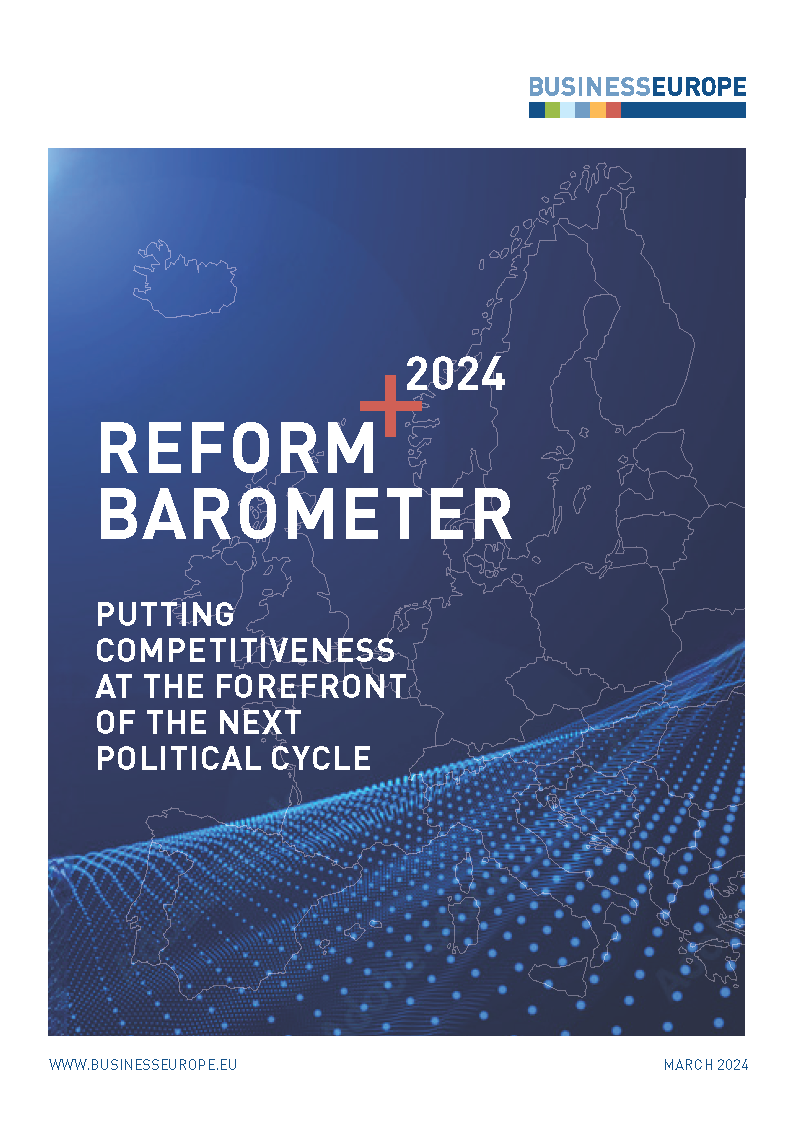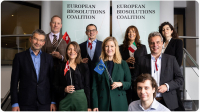Latest news
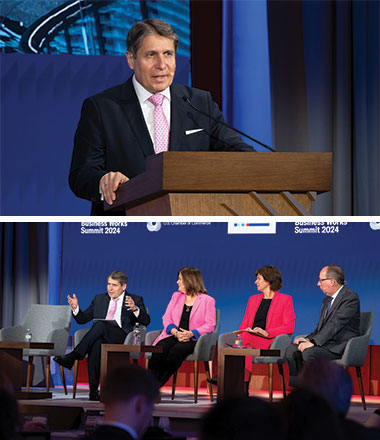
On 23 April, BusinessEurope and the U.S. Chamber of Commerce hosted the Transatlantic Business Works Summit at the Chamber's headquarters in Washington, D.C. Entitled "Driving competitiveness in a changing world", the Summit fostered discussions on broadening the $8.7 trillion commercial relationship between Europe and the United States. Director General Markus J. Beyrer emphasised that "In a world of rapid change and uncertainty, we need to be clear about the economic and geopolitical importance of the Transatlantic relationship. We must stress to policymakers that, in order to maintain and strengthen this vital partnership, they must focus on reducing the costs of doing business across the Atlantic, address trade irritants, find joint responses to market distortions and overcapacity, and improve coordination on economic security." - Read more - Photos
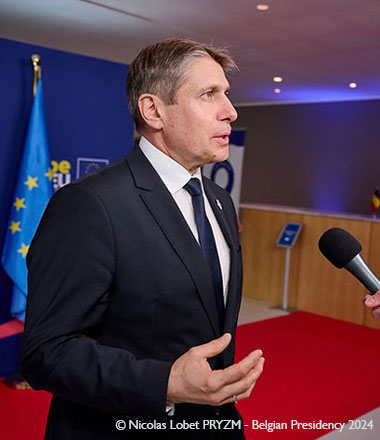
On 16 April, BusinessEurope attended an important discussion on the social dimension of the EU at the La Hulpe high-level conference. In his keynote speech, Director General Markus J. Beyrer underlined that social progress can only be built on economic success. European companies are committed to play their role in society, but unfortunately, they are held back by high energy costs, excessive regulation and skills and labour shortages. This hampers Europe’s economic growth and undermines their ability to deliver social progress. For BusinessEurope, the European social agenda should move away from a predominantly regulatory approach to social policy, promote mobility in our Single Market and address labour shortages as well as skills mismatches. - Read the full speech
We launched our campaign for policy changes in the next EU political cycle. BusinessEurope President Fredrik Persson said: “Faced with multiple geopolitical risks and economic uncertainty, the EU must put competitiveness at the forefront and use the next EU cycle to reboot its policies for today’s challenges." - Visit rebooteurope.eu to discover more.
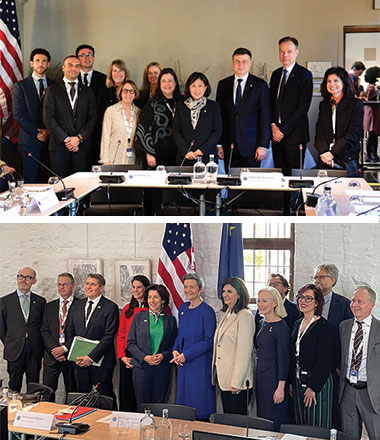
BusinessEurope highlighted the enormous opportunities for the EU and the U.S. to work together to ensure a successful, just, and inclusive green transition the Transatlantic Labour Dialogue Ministerial meeting. It was organised on 4 April in the margins of the sixth Trade and Technology Council in Leuven, Belgium. “The EU and the U.S. possess the resources and the expertise to drive meaningful change on a global scale if we cooperate to reinforce our shared competitiveness”, President Fredrik Persson said at the event. The business community strongly supports a high-level platform for structured dialogue between the EU and the U.S., and President Persson highlighted the need for structural improvements to allow concrete deliverables going forward. - Read more
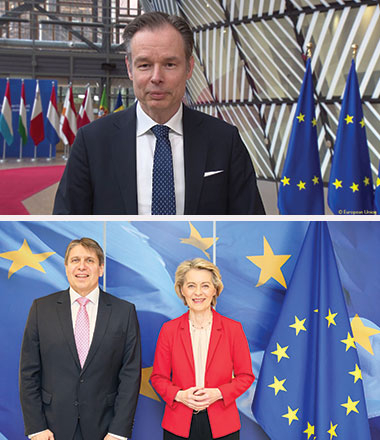
During the Tripartite Social Summit on 20 March, EU leaders and business representatives discussed the important of strengthening EU’s economy to achieve our environmental and social goals. President Fredrik Persson highlighted the challenges EU businesses faced in 2023, including geopolitical uncertainty, labour shortages, high energy prices and regulatory overburden. This was also confirmed by this year’s newly published Reform Barometer. The report revealed that the EU’s attractiveness to investors has not improved in the past year compared to our major competitors. Persson emphasised, "Europe's industrial resilience is at risk. Industrial production in the EU was down by 5.7% in January 2024 compared to the same time last year, and quality jobs are at stake. The EU needs to take concrete steps now to strengthen our economy, developing an industrial deal to complement the green deal.” - Read the full speech - Photos
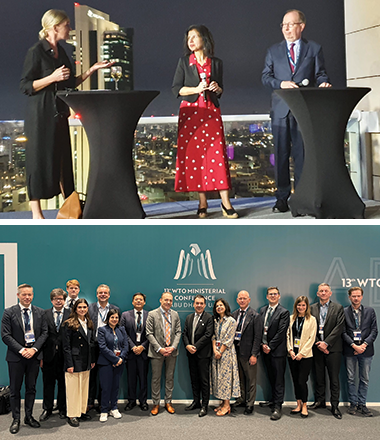
The WTO brings concrete advantages for companies, it provides legal certainty and stability in times of geopolitical tensions and increasing risks. At an event organised by BusinessEurope, the Confederation of Swedish Business and the US Chamber on the margins of the WTO's 13th Ministerial Conference (MC13), businesses from Europe and the USA highlighted the importance of the WTO in preventing non-tariff and tariff barriers and allowing for the development of more resilient value chains. The WTO needs to remain effective through enforceable rules, that support innovation and adjust to today’s digital and green transformation. The business community is keen to see an extension of the e-commerce moratorium, concrete actions to address the appellate body blockage, rules that protect intellectual property and address increasing subsidisation and advances in the plurilateral negotiations.
News and stories
Key message
Members news
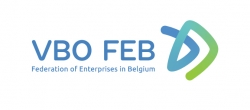
A stronger Europe in the world - FEB’s priorities for Europe’s 2024-2029 legislative session
